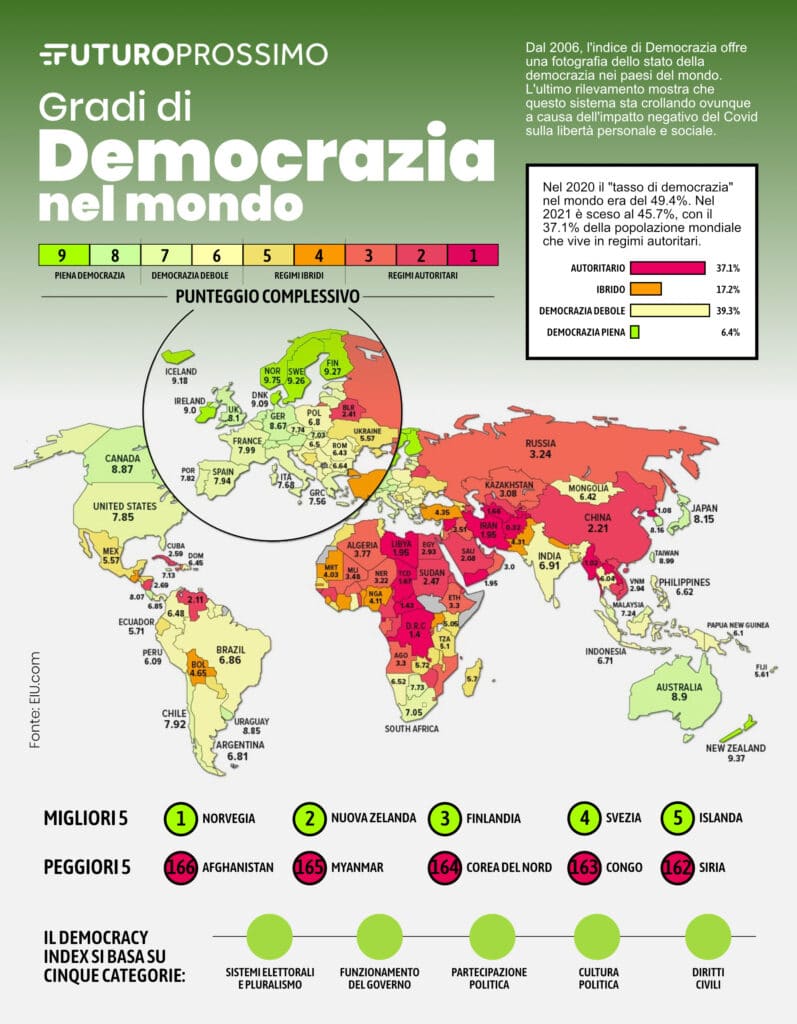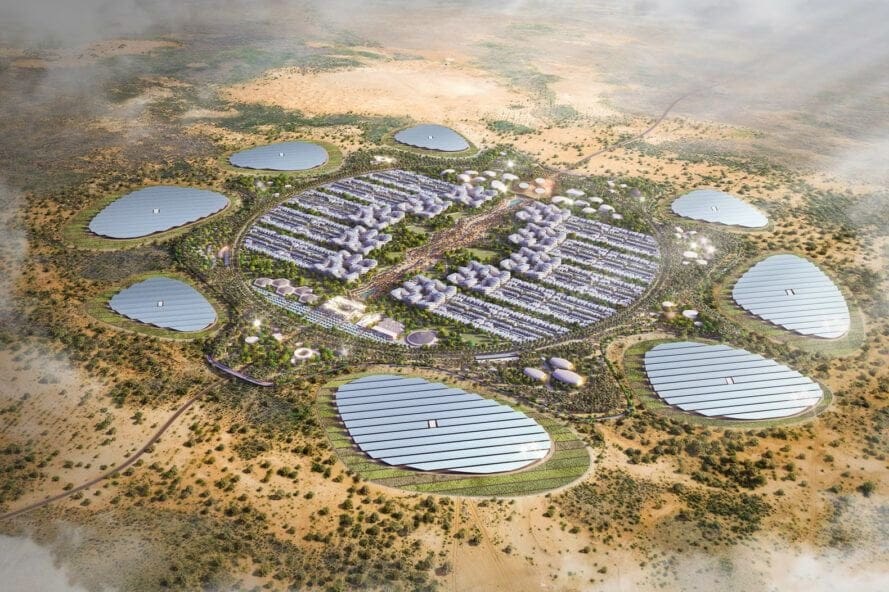This post is part of "Periscopio", the Linkedin newsletter which every week delves into Futuro Prossimo themes, and is published in advance on the LinkedIn platform. If you want to subscribe and preview it, find it all here.
I have long believed that our society's governments and organizational structures are losing strength, and will soon collapse. When I made these observations almost 10 years ago I remember getting weird looks, but after all this time the theme isn't that unusual anymore.
We are on the eve of the most rapid and profound transformation of human civilization since the transition to agriculture 10.000 years ago, and this is for many reasons.
Un interesting article of Observe Research Foundation identifies five major sources of conflict that are about to dramatically transform the shape of our societies. To these I add a sixth, but I will tell you later.
The reasons for a collapse
The ORF article identifies a common thread that runs through each of these battlegrounds. Everyone questions the so-called "Westphalian model“: the system based on international law that establishes the sovereignty of each nation over its territory and its internal affairs (with the exception of not interfering in the affairs of another country). More or less what we experience today between the UN, NATO and other organizations.
If reality wasn't enough to show why this model is unsafe, these big, big "clues" show it with extraordinary clarity.
In a book called “The Big Nine”, the writer Amy Webb explored the role of 9 great BigTech giants in shaping society. You all know them: Google, Amazon, Apple, IBM, Microsoft, Facebook, Baidu, Alibaba and Tencent. I talked about the topic in several articles on the blog: from creation of small “techno-governments” to new communities residential e social, passing through the new "political-strategic" commitment of these companies.
In summary: Technology has created new power structures that traditional governments have not yet framed, and these companies are rapidly reversing and rewriting the rules of the game, in all six battlegrounds. Yes, but what are these six battlegrounds?
First: tensions over the governance of the nation-state

Both governances that we see in the world (democratic and authoritarian, in various degrees as you see in the image) are being questioned today.
When these current systems are no longer able to keep pace with order-of-magnitude changes in technical capabilities, they will collapse. And they seem very close to doing so, incapable as they are of stemming or even just enhancing technological progress in the right way, that is, in the direction of citizens and ethics. This brings us directly to the next battleground.
Second: friction with supranational structures

Real structures are emerging, non-state governments that cross borders and regulate the lives of billions of people: once again technology is involved. The entire global economy has come to rely on private and critical infrastructure, provided by the very “Big 9” that Webb speaks of.
Powers that were once reserved only for sovereign nations. In other words, Big Tech they behave like superpowers, taking sides in ways never seen before: the War in Ukraine is only the latest example, perhaps the clearest.
As technology becomes increasingly entrenched in the physical world, issues related to “supranational governments” will increase. The birth of decentralized autonomies (DAO) and the further evolution of cryptocurrencies will create even more conflicts, accelerating the collapse.
Third: environmental constraints

The rhythm of the climate change it is much faster than that of governments, and certainly greater than our ability to adapt. It is useless to mention increasingly frequent floods, fires and heat waves: you know very well that these events are closely linked to the economy and politics.
Climate migration (which will increase enormously) will aggravate the already strong tensions over immigration. 20 million new migrants every year will need homes, jobs and resources in the countries they reach: and this will place further limits on resources. A very serious issue, which will favor the emergence of new nationalisms: environmental nationalisms, which will aim to protect the resources of a community by denying them to "foreigners" who want to access them out of necessity.
Fourth: interest-based non-state weapons

As mentioned, we live in a world centered on the state that is slowly eroding, and even if the states will resist in order not to disappear, they will gradually lose importance. War itself is becoming a phenomenon unrelated to states, and technology shows it to us.
The equivalent of $100 million in cryptocurrencies was collected in the world to support Ukraine. Many people (even not directly related to the warring states) gathered and went to fight for both sides. The delusion of modern and technological warfare is that anyone can participate and die regardless of race, nationality and sometimes (unfortunately) even age.
Fifth: 'space' disputes

The fifth domain of the conflict is even external to our planet. From only 6 years private individuals were formally authorized to go into space, but it seems like a century has passed. Private interests in exploration and space tourism they are increasingly stronger and increasingly organised: in the coming decades we will witness a new "wild west" in which international law will often give way to the predominance of new "non-governments". That is, emerging power structures that will prove more capable, or stronger.
Sixth: cities against nations

We are witnessing the very rapid rise of megacities: agglomerations that now number tens of millions of people, real "City-States". The next battleground will have to do with their self-sufficiency: a characteristic long sought after, that technology now promises to accomplish.
Cities that become less dependent on the rest of the world for energy, food and goods will tend to challenge our current social structures, and the governments we know. It is not excluded that in the future they will adopt their own rules, increasingly questioning the current form of states.
These six "enemies" of society (or "helpers" of future societies, depending on your point of view) make it clear that structural change is underway and will be radical and complex.


